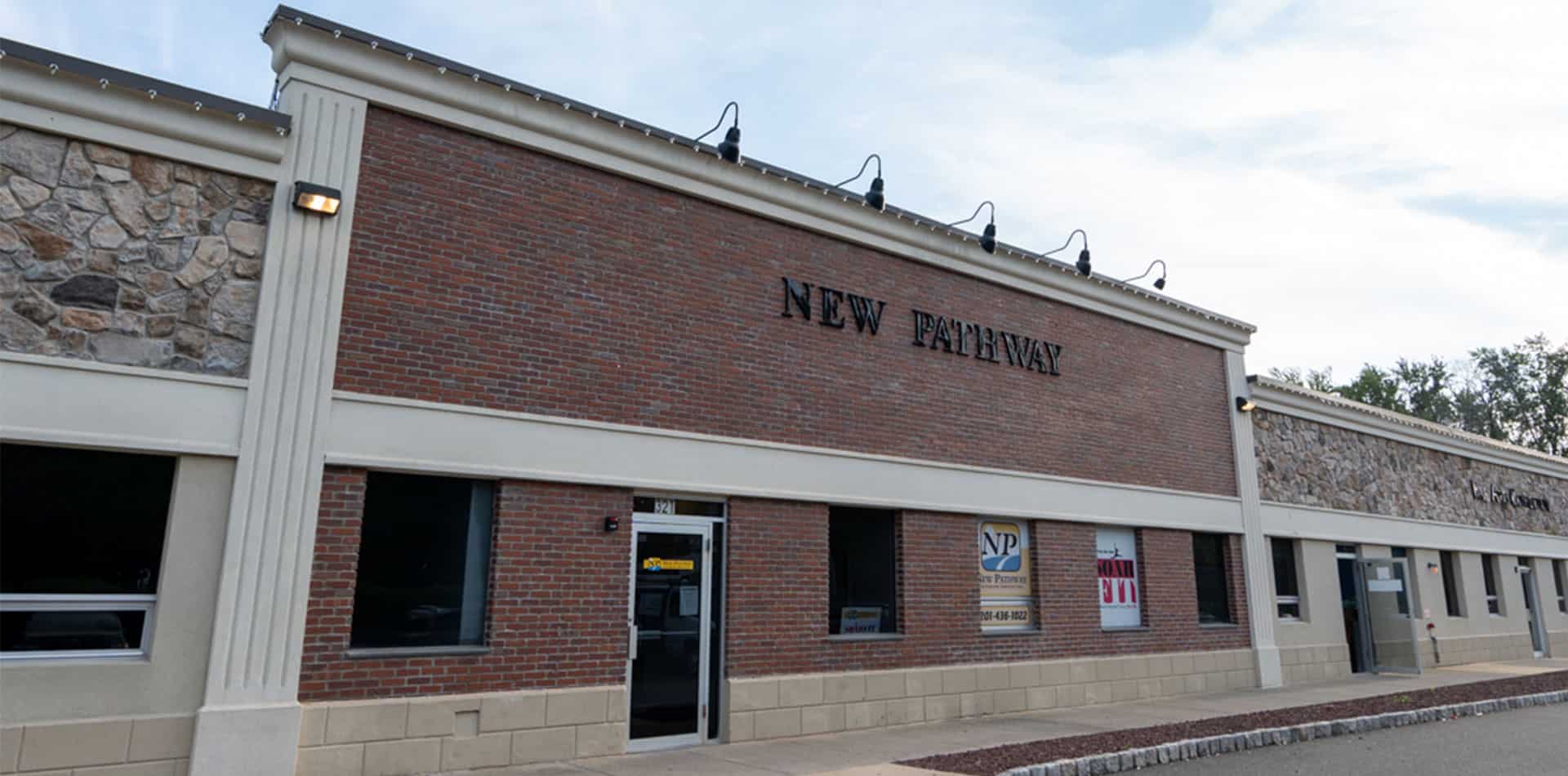Teen & Adolescent Substance Use Detox
What you will learn:
- What is medical detox for adolescents?
- Why is Guardian Recovery’s holistic treatment program unique?
- How does treatment address behavioral, emotional, and mental health concerns?
We Specialize In Adolescent Treatment
"*" indicates required fields
By selecting this checkbox and entering mobile number I agree to receive GR Support from Guardian Recovery Network Holdings LLC. Message frequency varies. Text HELP to 96909 for help, Text STOP to 96909 to end. Msg&Data Rates May Apply. By opting in, I authorize Guardian Recovery Network Holdings LLC. to deliver SMS messages using an automatic dialing system and I understand that I am not required to opt in as a condition of purchasing any property, goods, or services. By leaving this box unchecked you will not be opted in for SMS messages at this time. Click to read Terms and Conditions & Privacy Policy.
Teen & Adolescent Drug & Alcohol Addiction Medical Detox
For adolescents struggling with substance use and behavioral and mental health concerns, recovery is a multifaceted process that requires a comprehensive and compassionate approach. While the physical removal of substances from the body is a crucial first step, it’s equally important to address the underlying psychological, emotional, and social factors that contribute to substance use.
At Guardian Recovery, we provide a safe and structured environment where young individuals can receive the necessary support to manage withdrawal symptoms, develop coping mechanisms, and lay the foundation for long-term recovery. Our supportive team is committed to helping each adolescent achieve both physical and mental stabilization in a safe, medically supervised environment. Meanwhile, we take the first steps to prepare them for ongoing care and long-term recovery.
Ready to help your teen embark on a transformational journey? Reach out to us today. Discover how our adolescent drug and alcohol detox programs and holistic behavioral care can provide the support and guidance your child needs to find healing and wellness.
True transformation is within reach. Guardian Recovery can help.
What Is Teen & Adolescent Medical Detox?
Medical detox at Guardian Recovery is not merely about the physical removal of substances from the body. It’s a transformative process that addresses the unique needs and challenges faced by young individuals.
Once the body develops physical dependence on a substance, individuals typically experience withdrawal symptoms when use is suddenly stopped or significantly curtailed. With many substances, withdrawal symptoms can be extremely uncomfortable, often prompting teens to resume substance use to relieve discomfort. With some substances, however, withdrawal symptoms can be life-threatening if attempted without medical care and monitoring.
First and foremost, Guardian Recovery’s medically managed detox ensures that your child is safe, comfortable, and supported emotionally and physically during withdrawal. Medical and counseling staff monitor your teen 24/7, providing medications and supportive measures as necessary to alleviate withdrawal symptoms, prevent complications, and reduce cravings.
While teens can rest and relax as needed during medical detox, we encourage them to participate in group and individual therapy, which can smooth the transition from detox to residential or outpatient care. Plus, doing so allows them to begin to identify and address the causes of their substance use and behavioral concerns.
And since families are an integral part of the healing process at Guardian Recovery, we provide daily updates on your child’s progress during detox. Plus, we begin to schedule the next steps of family involvement, which include family therapy, parent support groups, workshops, and more.
As your child embarks on this transformative journey, they will discover that detox is not an end, but a beginning.
Get Local Help
Questions?
Learn More About the Recovery Process
- Our Approach
- The Treatment Process
- Frequently Asked Questions
- Insurance Check
- Ask a Question
Navigating the Challenges of Detoxification in Adolescents
Navigating the challenges of adolescent detox requires a comprehensive and sensitive approach due to the unique physiological and psychological aspects of this age group. Adolescents experiencing withdrawal face not only uncomfortable physical symptoms but also complex emotional and developmental issues. This delicate period demands an environment that ensures safety, understanding, and support.
Guardian Recovery offers a two-pronged approach to adolescent detox, pairing medical supervision, medications, and supportive measures to manage withdrawal symptoms and cravings with psychological support to begin to address underlying issues such as peer pressure, family dynamics, and mental health disorders. This dual approach provides the perfect balance of care for your teen and paves the way for ongoing treatment and long-term recovery.
Managing Withdrawal Symptoms in Medical Detox
Once dependence has developed and substance use is stopped or significantly curtailed, the body struggles to adjust to its absence. During this time, individuals typically experience a series of withdrawal symptoms.
The type and severity of withdrawal symptoms depends on a host of factors, including the type of substance used, the frequency of use, the duration of use, and various personal and individual characteristics.
Common Teen Withdrawal Symptoms
Given the myriad factors that can affect withdrawal symptoms, it’s impossible to provide a list of common withdrawal symptoms that applies to all teens. However, the following withdrawal symptoms can offer broad insights on what your teen might experience for common substances of misuse. But don’t be alarmed. While medical detox is imperative for your child’s mental and physical well-being, Guardian Recovery provides 24/7 care, monitoring, and support to ensure your teen is safe and comfortable during medical detox.
Alcohol Withdrawal Symptoms
Alcohol withdrawal symptoms can include elevated blood pressure, sweating, dialated pupils, disorientation, anxiety, hallucinations, nausea, and seizures. Alcohol detox without medical supervision can sometimes lead to a potentially life-threatening condition known as delirium tremens, which is marked by severe withdrawal symptoms, including tremors, hallucinations, confusion, heart complications, and seizures.1
Opioid Withdrawal Symptoms
Opioids include illicit substances such as heroin and fentanyl as well as prescription drugs such as oxycodone (OxyContin, Percocet) and hydrocodone (Vicodin). Almost all opioids are highly addictive and can lead to the development of an opioid use disorder. Opioid withdrawal symptoms can include nausea, vomiting, diarrhea, anxiety, increased body temperatures, sweating, chills, racing heart rate, muscle and bone pain, insomnia, and high blood pressure.2,3 While typically not life-threatening in and of themselves, opioid withdrawal symptoms are extremely uncomfortable and often lead to relapse to eliminate the discomfort.
Benzodiazepine Withdrawal Symptoms
Benzodiazepines are a type of central nervous system (CNS) depressant often used to treat anxiety, panic, muscle spasms, or seizures. Common examples of benzos include: alprazolam (Xanax), clonazepam (Klonopin), and lorazepam (Ativan). Benzodiazepine withdrawal symptoms can include insomnia, anxiety, nausea, vomiting, hallucinations, psychomotor agitation, hand tremors, seizures, and involuntary nervous system hyperactivity. Seizures and delirium tremens are possible with benzo withdrawal, so medical supervision during withdrawal is recommended.4
Your Teen's Transformation Starts
Here
Guardian Recovery Adolescent can help your teen take control of their lives, putting them on a path to a brighter future filled with possibility.
Supervision & Monitoring in Teen Medical Detox
Due to the unpredictable nature of withdrawal symptoms, Guardian Recovery provides constant oversight by medical professionals skilled in adolescent care. Along with 24/7 monitoring, our compassionate care team provides emotional support as well as supportive measures and medications as needed to ensure safety and minimize symptoms and cravings.
Unlike most rehabs, however, our medical detox for adolescents extends beyond physical care, as we offer emotional and psychological support to help teens navigate the complexities of detoxification.
Our homelike haven for healing is designed to be secure yet comforting, fostering a sense of safety and trust. Additionally, the detox process is often integrated with counseling sessions and educational programs that can begin to equip young clients with the knowledge and coping mechanisms necessary for post-detox life. This comprehensive approach ensures that the detoxification phase is medically sound, and it empowers your teen to begin to address the underlying causes of behavioral issues.
What Is the Detox Process for Teen Substance Use Disorder (SUD)?
The detox process begins with an in-depth review of your child’s medical and mental health history. Our professionals speak with you and your teen to gather vital information that then helps us carefully tailor your teen’s treatment plan, including suggested duration, supportive measures, treatment medications, and more.
Once your teen enters our care, we enact that plan, carefully monitor your child’s comfort and emotional health, and adjust treatment as needed. And of course, we keep parents or guardians informed and updated along the way.
Throughout Guardian Recovery’s medical detox we also offer teens the opportunity to participate in individual and group therapy. Compassionate counselors and staff strive to engage teens and help them to start to identify and address the underlying issues driving their behavioral, mental health, and substance use concerns. In the meantime, this education and interaction paves the way for ongoing treatment and long-term recovery.
Substances That Require Medical Detox
Experts regularly recommend medical detox for alcohol, benzodiazepines, stimulants, and opioids, as withdrawal symptoms related to these substances can be life-threatening and/or extremely uncomfortable if detox is attempted without medical care and monitoring. However, withdrawal symptoms for all substances are unpredictable. Plus, polysubstance use (i.e., the use of more than one substance concurrently) can complicate withdrawal. Thus, it’s important to seek medical advice before attempting any type of substance withdrawal independently.
Commonly Used Medications for Teen Substance Use Detox
Guardian Recovery employs various prescription medications and supportive measures (e.g., hydration, over-the-counter remedies, anti-diarrheals, nausea medications, etc.) to ensure comfort and safety during withdrawal.
The U.S. Food and Drug Administration has approved several drugs for the treatment of withdrawal and substance use disorders. Some of the more common pharmaceuticals include:1,5
- Benzodiazepines (e.g., diazepam, lorazepam)
- Buprenorphine
- Methadone
- Suboxone (i.e., buprenorphine/naloxone)
- Naltrexone
Complimentary Insurance Check
Find Out Today!
"*" indicates required fields
Does your insurance cover mental health?

Our Locations
Our Facilities & Teams Transform Lives
Changing lives by providing comprehensive support and rehabilitation, empowering individuals to overcome addiction and regain control of their health and well-being.
Adolescent Substance Use Detox & Co-Occurring Disorders
Mental health disorders, behavioral issues, and substance use are three sides of the same triangle. They often occur concurrently and can significantly influence one another, leading to a repetitive cycle that escalates and worsens conditions.
In fact, research reveals that adolescents with substance use disorders also have high rates of co-occurring mental illness—a condition known as dual diagnosis. What’s more, since the brain continues to develop in adolescence, the circuits that control executive functions such as impulse control and decision-making are among the last to mature. Thus, adolescents are at an increased risk for substance use and the development of a substance use disorder, which can also be a risk factor for mental illness later in life.6 It’s not surprising, then, that the onset for mental illness and substance use disorders often occurs during adolescence.7
While all of this information sounds troubling, help and hope are available via Guardian Recovery’s dual diagnosis treatment. A form of integrated care, our dual diagnosis treatment addresses both mental health and substance use conditions currently—as opposed to tackling them independently. Employing evidence-based strategies such as cognitive behavioral therapy (CBT), trauma-informed care, eye movement desensitization and reprocessing (EMDR), and motivational interviewing (MI), our integrated approach boosts interpersonal coping skills and supports motivation for recovery.7
According to insights from the National Institute on Drug Abuse, this type of integrated, concurrent-disorder treatment has proven consistently superior to treating each disorder independently.7
How Long Does it Take to Detox Adolescents from Substance Use?
The exact time that it takes for an adolescent to detox from a substance varies dramatically according to the aforementioned factors. However, medical detox for teens can last anywhere from 3 to 7 days, or longer as needed.
At Guardian Recovery, we continually assess your teen’s progress from the moment they enter our doors. When necessary, detox length is adjusted to ensure your child is safe, comfortable, and ready to enter the next course of care when medical detox concludes.
What Is the Next Step After Detox for Adolescent Substance Use Treatment?
At Guardian Recovery, substance use treatment isn’t a one-size-fits-all solution, nor does it always take a linear path. Rather, treatment plans are continually customized to fit your child’s unique needs, preferences, and progress.
Following our medical detox—or as an initial point of care—treatment options include inpatient/residential treatment, a partial hospitalization program (PHP) with or without housing, or an intensive outpatient program (IOP).
Our holistic treatment process provides a gradual step down in service intensity, enabling both teens and families to develop the skills and tactics necessary to adjust to a new normal and foster health, well-being, and recovery long-term.
Guardian Recovery’s post-detox adolescent treatment options include:
Ready to Change Your Teen’s Future?
Your Next Steps
Our Approach to Teen & Adolescent Detox & Treatment
We believe that your child’s challenging behaviors are not a true reflection of who they are or who they can become. Instead, these behaviors are often symptoms of deeper issues waiting to be addressed.
Our commitment to holistic care means we dive deep to uncover the root causes, offering personalized treatment tailored to the unique journey of each teen. We empower families to become a driving force for change, creating a nurturing environment where both teens and their loved ones can heal, grow, and thrive together.
We also understand that academic success plays a crucial role in a teen’s overall recovery. As such, we seamlessly integrate educational support into our treatment plans. This not only nurtures your child’s intellect but also helps rebuild their confidence and reignite their passion for learning, setting the stage for a brighter future.
With Guardian Recovery, your child will find not only a path to healing but also a roadmap for enduring success beyond formal treatment.
Our Simple Admissions Process
At Guardian Recovery, we are dedicated to providing a comprehensive, holistic approach to the treatment of anxiety disorders and dual diagnosis in adolescents. Our team of qualified professionals collaborates closely with families to develop individualized treatment plans that combine evidence-based therapies, holistic practices, and ongoing support.
If you’re worried about your teen’s struggles with substance use, troubling behaviors, or mental health—or you’re not sure whether you should be worried—Guardian Recovery can help.
Reach out now to speak with a treatment advisor, who can answer your questions, offer a brief assessment of your teen’s struggles, and discuss treatment options. Staff can also verify your insurance benefits and discuss alternative payment options. The call is free and confidential, and you’re under no obligation to enter care.
Health, hope, and healing are not just possible—they’re within reach. Let Guardian Recovery help you and your teen start this important journey today.
FAQs
As noted above, detoxing from some substances without medical care and monitoring can be life-threatening. Plus, detoxing without medical care often leads to relapse to relieve discomfort. So it’s important to seek medical advice before attempting any type of substance withdrawal at home.
In addition, adolescents experiencing withdrawal must deal with both uncomfortable physical symptoms as well as complex emotional and developmental issues. And chances are, if your child is dealing with substance use concerns, underlying emotional, behavioral, and/or mental health issues should also be addressed to ensure the best long-term outcomes.
Medical detox at Guardian Recovery ensures your child is safe and as comfortable as possible during withdrawal. Plus, teens can participate in individual and group therapy, enabling them to begin to address the underlying causes of their behavior.
Our medical and mental health professionals work with you and your teen to complete a comprehensive assessment prior to or during the initial hours of admission. This enables our care teams to plan for and address any physical or mental health conditions that occur alongside substance use. We then integrate any necessary accommodations and medications into your teen’s care plan and provide ongoing communication with you as well as updates to the care plan as necessary.
The detox process is unique to each individual. The type, severity, and duration of withdrawal symptoms also varies according to each substance, and a host of personal factors impact each teen’s individual experience.
Since each treatment program is customized to the unique needs of each teen in our care, no two care plans are alike. As such, costs vary dramatically. However, we accept most major insurance plans, and both mental health and substance use disorder care are typically covered by insurance. To know for sure how much you’ll pay and how much your insurance will cover, reach out now for a free and confidential phone call. Our staff can answer your questions, discuss care options, verify your insurance benefits, and discuss alternative payment options if necessary.
Safety is our primary objective during adolescent medical detox. As such, our highly trained medical and counseling staff monitor and support your teen 24/7. Medications and supportive measures are provided as needed, and emotional support is always available.
We believe in complete and total confidentiality and privacy for all of our clients. We go above and beyond HIPAA and health privacy standards. If you are concerned about specific privacy requirements for you and your teen, reach out to learn more.
Families are a powerful force of change. Guardian Recovery leverages and fuels this power, enabling teens and families to heal and grow together. Along with providing ongoing communication regarding your teen’s progress, we offer a host of family-specific services as your teen progresses through our treatment options. Parents and guardians can participate in family therapy, workshops, educational sessions, and peer support groups.
Sources
- Kattimani S, Bharadwaj B. Clinical management of alcohol withdrawal: A systematic review. Ind Psychiatry J. 2013;22(2):100-108. doi:10.4103/0972-6748.132914
- Shah M, Huecker MR. Opioid Withdrawal. [Updated 2023 Jul 21]. In: StatPearls [Internet]. Treasure Island (FL): StatPearls Publishing; 2024 Jan-.
- Pergolizzi JV Jr, Raffa RB, Rosenblatt MH. Opioid withdrawal symptoms, a consequence of chronic opioid use and opioid use disorder: Current understanding and approaches to management. J Clin Pharm Ther. 2020;45(5):892-903. doi:10.1111/jcpt.13114
- American Psychiatric Association. (2013). Diagnostic and statistical manual of mental disorders (5th ed.). Arlington, VA: American Psychiatric Publishing.
- Substance Abuse and Mental Health Treatment Services Administration. (2020). TIP 63: Medications for Opioid Use Disorder.
- National Institute on Drug Abuse. (2018). Common Comorbidities with Substance Use Disorders Research Report. Part 1: The Connection Between Substance Use Disorders and Mental Illness.
- National Institute on Drug Abuse. (2018). Common Comorbidities with Substance Use Disorders Research Report. What are the treatments for comorbid substance use disorder and mental health conditions?
Reviewed professionally for accuracy by:

Ryan Soave
L.M.H.C.
Ryan Soave brings deep experience as a Licensed Mental Health Counselor, certified trauma therapist, program developer, and research consultant for Huberman Lab at Stanford University Department of Neurobiology. Post-graduation from Wake Forest University, Ryan quickly discovered his acumen for the business world. After almost a decade of successful entrepreneurship and world traveling, he encountered a wave of personal and spiritual challenges; he felt a calling for something more. Ryan returned to school and completed his Master’s Degree in Mental Health Counseling. When he started working with those suffering from addiction and PTSD, he found his passion. He has never looked back.




